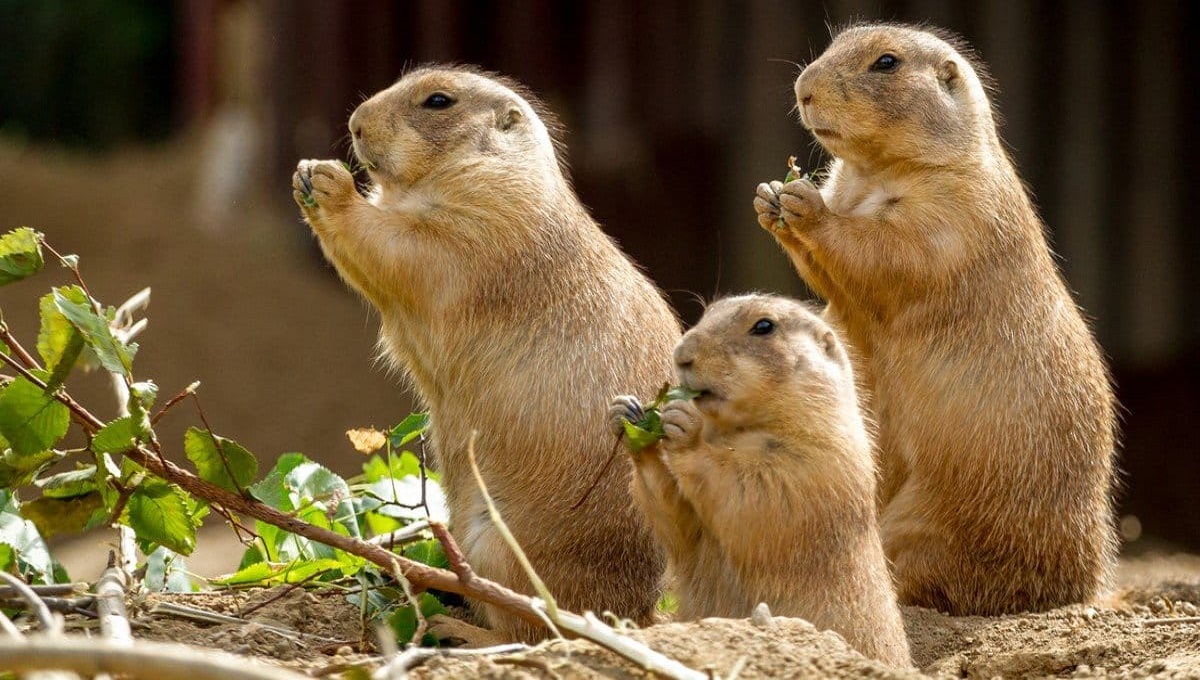Can You Own a Prairie Dog?
Yes, you can own a prairie dog, but it depends on the laws of your local jurisdiction. Ownership regulations vary by state, country, and city. Owning a prairie dog is a unique choice for a pet, drawing pet enthusiasts who admire their sociable and playful nature.
These small, burrowing rodents indigenous to the grasslands of North America are known for their complex social structures and endearing behaviors. Before considering a prairie dog as a pet, you must research thoroughly, as their care requires a dedicated and informed owner.
Some regions have specific restrictions or bans on prairie dog ownership due to environmental and health concerns. Proper habitat, diet, and social interaction are crucial for their wellbeing.
Potential pet owners should consult with local wildlife authorities and professionals in exotic animal care to ensure they can meet all legal and husbandry requirements for keeping a prairie dog as a companion.
The Legal Status Of Owning Prairie Dogs
When you think of pets, cats and dogs likely come to mind. Yet, some folks are captivated by the charm of prairie dogs. Deciding to bring one into your home isn’t just about care and companionship.
You must understand the legal side. Let’s dig into the rules surrounding the ownership of these adorable creatures.
Federal Regulations
Federal laws are the big rules that everyone in the country follows. These laws say things about traveling with animals and protecting wildlife. For prairie dogs, you need to know about the Lacey Act.
This Act stops the spread of wildlife diseases. It’s why you can’t take prairie dogs across state lines, in some cases. Disease-free certification might be needed. Keep updated with the U.S. Fish and Wildlife Service for the latest info.
State Regulations
Now let’s talk about state rules. These can be tricky, as they change from place to place. Some states are totally cool with you having a prairie dog pal. Others say no. It can even vary within the state, between different cities or counties.
| State | Is Owning a Prairie Dog Allowed? |
|---|---|
| Texas | Yes, with special permits. |
| Colorado | Sort of. Depends on the area. |
| Pennsylvania | Not allowed. |
This table is a snapshot. Always check with your local wildlife agency. They’ll have the up-to-date info you need. Penalties for breaking the rules can be stiff. Fines or even losing your prairie dog might happen.
Research is key. Rules can change, so even if you know the current law, keep checking. Owning a prairie dog takes responsibility. Make sure you are ready to follow these rules.
Potential Benefits Of Owning A Prairie Dog
Potential Benefits of Owning a Prairie Dog: Owning exotic pets can be thrilling and educational. Prairie dogs, small burrowing rodents from North America, offer unique advantages as pets.
Their endearing qualities and manageable care requirements make them an intriguing option. Let’s dig into the benefits of having these delightful animals in your life.
Interactive And Playful Pets
Prairie dogs are social creatures with a knack for forming deep bonds with their owners. They boast affectionate and playful personalities, ensuring engaging companionship. Owners delight in their interactive behaviour and expressive communications.
These pets thrive on attention and can learn to perform tricks, adding a fun dynamic to pet ownership.
Low Maintenance
| Feature | Benefit |
|---|---|
| Feeding | Simple diet of hay and pellets |
| Housing | Easily maintained enclosure |
| Cleanup | Effortless with regular schedule |
Unlike many pets, prairie dogs require minimal grooming and exercise. Their care routine easily fits into busy schedules. The animals adapt well to living in a safe, indoor enclosure.
This adaptability makes them suitable for various living spaces, from apartments to houses.
Educational Opportunities
- Observe natural behaviors: Prairie dogs offer a window into wildlife habits.
- Responsibility: Caring for them teaches discipline and compassion.
- Conservation: Understand the importance of species preservation.
Keeping a prairie dog can be incredibly educational. Children and adults alike can learn about animal biology, ecology, and the environment. Prairie dogs also play a critical role in their ecosystems, which can be a valuable lesson on biodiversity.
Considerations Before Owning A Prairie Dog
Owning a prairie dog isn’t like having a typical pet. These unique creatures demand a lot of consideration.
Habitat And Space Requirements
Prairie dogs need ample room to thrive. They are used to open spaces. You should provide an enclosure that allows them to dig and explore. It should mimic their natural habitat.
- Large enclosure: Provide lots of space for movement.
- Substrate for digging: A deep layer for burrow-making.
- Safe materials: Avoid toxic additives or sharp objects.
Specialized Diet And Nutrition
Their diet is crucial for their well-being. Prairie dogs eat grasses, herbs, and hay.
| Food type | Benefits |
|---|---|
| High-fiber grasses | Promotes digestion |
| Fresh vegetables | Provides necessary vitamins |
| Timothy hay | Good for dental health |
Healthcare And Veterinarian Needs
Prairie dogs require regular check-ups. You should find a vet with exotic animal experience. Immunizations and health screening are a must.
- Find an exotic animal veterinarian.
- Schedule routine health checks.
- Stay updated with vaccinations.
Legal Considerations
In some places, prairie dogs are not legal to own. Check local laws and regulations before bringing one home. Some areas might need a special permit.
- Local laws: Research ownership legality.
- Permits: Obtain necessary documentation.
- Conservation status: Be aware of wildlife protections.
Alternatives To Owning A Prairie Dog
Alternatives to Owning a Prairie Dog offer rewarding experiences for animal lovers. Despite their cuteness, prairie dogs need special care. Not all regions allow prairie dogs as pets. Here are some fulfilling options to consider instead.
Domesticated Rodent Pets
Many rodents enjoy human companionship and are easier to care for.
- Guinea Pigs: Friendly and vocal.
- Hamsters: Independent and great for small spaces.
- Gerbils: Social and less likely to bite.
- Rats: Intelligent, love to learn tricks.
Volunteering Or Visiting Prairie Dog Sanctuaries
Sanctuaries provide safe homes for prairie dogs. Here, you can interact with these animals without owning one.
| Activity | Benefits |
|---|---|
| Volunteering | Hands-on care, conservation education. |
| Visiting | Observe their behaviors, support their habitat. |
Conclusion
Owning a prairie dog is no small feat. It requires a blend of dedication, awareness, and the right environment. As you weigh the pros and cons, remember these creatures’ unique needs. Should your lifestyle align with their care, a furry companion awaits.
Frequently Asked Questions
Is Owning A Prairie Dog Legal?
Owning a prairie dog varies by locale, with some areas requiring special permits or forbidding ownership entirely due to environmental concerns.
What Do Prairie Dogs Eat?
Prairie dogs primarily feed on grasses, roots, and seeds, reflecting their natural diet in the wild.
How Long Do Prairie Dogs Live?
In captivity, prairie dogs can live up to 8 years, but their lifespan often varies depending on care and environment.
Do Prairie Dogs Need Special Care?
Yes, prairie dogs require specific care, including a spacious habitat, social interaction, and a diet tailored to their nutritional needs.
Can Prairie Dogs Be House-trained?
Prairie dogs can be litter-trained with patience and consistency, much like other pet rodents.




